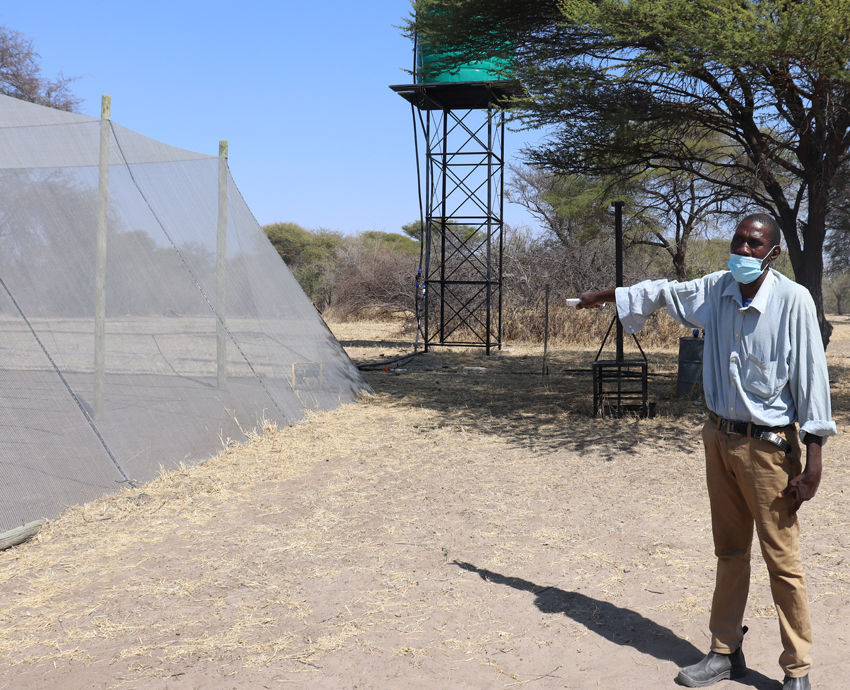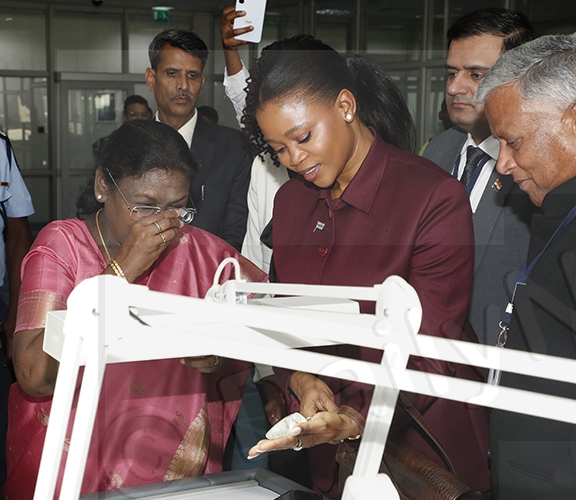OKACOM brings hope to farmers
31 Aug 2020
Okavango River Basin Water Commission (OKACOM) has brought hope to some Ngamiland farmers, who have been struggling to secure farming equipment to boost their yields.
OKACOM is was established by three riparian states of Angola, Botswana and Namibia to jointly manage water resources of the Cubango-Okavango River Basin.
In an effort to improve food security in Ngamiland, OKACOM, in collaboration with the Ministry of Agricultural Development and Food Security, embarked on a horticulture demonstration project and some farmers were identified to participate in the project.
The project focuses on enhancing horticultural produce through climate-smart practices with a view to link horticultural production with the up-market tourism value chain and other local markets.
Through the project, farmers had been assisted with infrastructure and machinery as OKACOM intends to contribute towards improving socio-economic status of local communities across the basin with minimum adverse impact and enhanced protection of the basin ecosystem.
One beneficiary, Mr Chilume Hange of Makalamabedi could not hide his excitement, noting that OKACOM had made him proud as he had received infrastructure assistance.
He revealed, in an interview, that lack of equipment had been a stumbling block, as it limited him to produce more yields and thanked OKACOM for rescuing him, adding that initially, he used a hosepipe to water his garden.
OKACOM, he said, provided and connected 10 000 water tank, shade nets and a diesel water pump, with which he sources water from the river. It also appointed an expert to offer technical know-how to identified farmers.
Mr Hange, who is passionate about agriculture, owns 25 hectares of land along the Thamalakane River bank, where he had been running a horticulture project for the past five years, specialising in rape, tomatoes, green pepper, among others.
“I am very proud to be amongst the identified farmers for the horticulture demonstration project. Currently, I am enjoying fresh water and I am planning to diversify my production because I have a portion of unutilised land,” he added.
The project, he said, had changed his farm structure and motivated him to go an extra mile.
He noted that the water pump machine was big, and worked like a booster bump with high pressure.
Mr Hange said the infrastructure had given him an assurance that his project would thrive, more so that he was doing something close to his heart.
He is an agriculture teacher by profession and he revealed that he resigned in 2011 from Makalamabedi Junior Secondary School because he wanted to be hands on, hence the commencement of his horticulture project.
Mr Hange once worked for Zambezi River Basin initiative on a two-year contract, as a project manager.
During his tenure at OKACOM, he worked with Kasane and Gweta communities.
He revealed that the initiative aimed to reduce the impact of challenges faced by communities along the Zambezi River Basin and improve their quality of life.
Horticulture is an important undertaking, unlike other agriculture commodities; he said, adding that it could be practiced profitably at both large and small scale, depending on availability of water.
Vegetables, he said, required large quantities of water, hence the need to have a reliable water source.
He is also of the view that Batswana are capable of feeding the nation if they could work hard and show commitment in their farming projects.
Mr Hange noted that the market was readily available since government implemented the local procurement support through Local Economic Development initiative.
The initiative, he said, was a breakthrough as it had boosted small businesses, noting that ‘we are currently enjoying great support from government departments such as hospitals, schools as well as individuals and hawkers’.
He wished the project could be extended to other farmers in the district and appealed to fellow farmers to exercise patience, commitment and hard work in order to operate successful projects.
Mr Hange said farmers should turn challenges they encountered into opportunities and drive their vision.
He also stressed the need to have a plan of activities, saying doing things haphazardly could affect production. ENDS
Source : BOPA
Author : Esther Mmolai
Location : MAKALAMABEDI
Event : INTERVIEW
Date : 31 Aug 2020






